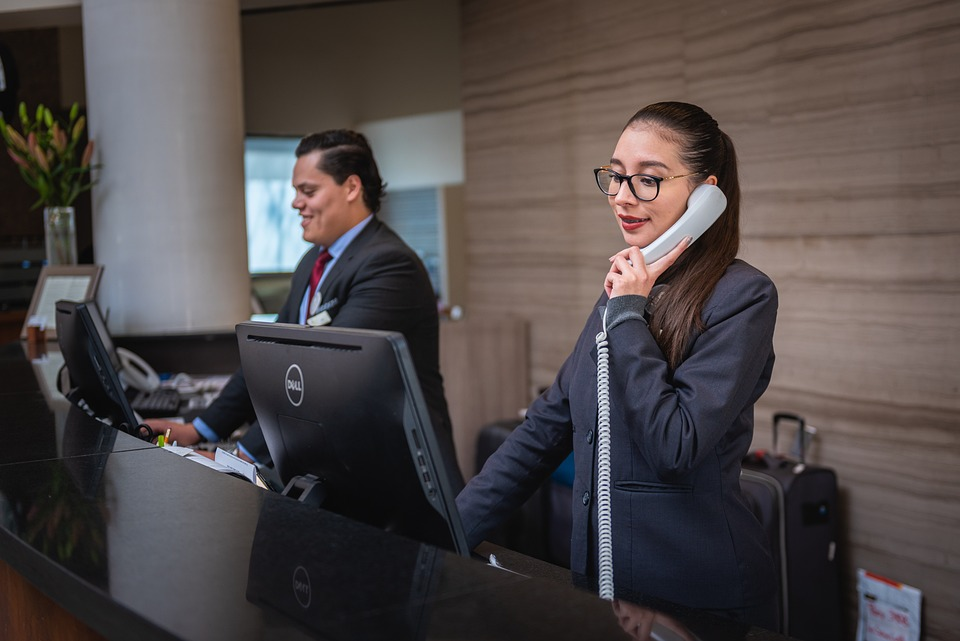
The hospitality industry is changing. With the emergence of new technologies, the way hotels, restaurants, and other related businesses operate is also undergoing drastic changes. The latest technology trends in the hospitality industry are creating more opportunities for innovation and efficiency, allowing businesses to serve their customers better and increase their profits. This article will explore some of the top technology trends in the hospitality industry you need to know about.
From online booking services to AI-driven customer service tools, these innovations are making it easier for hotels and restaurants to provide exceptional guest experiences while driving down costs. We’ll also look at how integrating these technologies can positively impact your business’s bottom line.
Hotel POS Systems
Hotel Point of Sale (POS) systems have rapidly gained traction in the hotel and hospitality industry. They are quickly becoming an essential component of any hotel business’s success. This technology is being adopted by hoteliers due to its immense potential to streamline processes, improve customer service, and even increase hotel revenue.
The POS system allows hoteliers to synchronize several different functions and consolidate data across all areas of the hotel. It also offers a secure platform for processing payments, which can be done seamlessly with customers. A hotel POS system can also provide valuable insights into guest preferences and loyalty programs that can help hotels better understand their guests’ needs and desires. Furthermore, hotel owners can take advantage of the ability to track inventory, streamline bookings and reservations, and reduce labor costs.
Online Booking Services
The hospitality industry is a booming business, and to keep up with the competition, staying abreast of the latest technology trends is essential. One such trend quickly gaining traction is Online Booking Services (OBS). This service allows customers to book rooms, flights, events, and more from their own devices – be it their laptop, smartphone or tablet.
By eliminating the need for physical interaction between staff and customer, OBS has made booking simpler and safer. In an age where social distancing has become necessary, this kind of technology can give customers peace of mind that they can still get what they need without putting themselves at risk.
It is also a great way to ensure that your customers get the best value for their money. OBS allows you to compare prices and services from different providers, helping customers choose exactly what they need without worrying about hidden costs or extra fees.
Moreover, it is much more efficient than manual booking systems. All bookings can now be done quickly and easily with just a few clicks of a button, meaning you don’t have to waste valuable time on paperwork or double-checking every detail.
Automated Check-In and Check-Out Systems
Automated check-in and checkout systems can drastically reduce wait times for your customers. Guests no longer have to spend time in line at the front desk waiting for a staff member to assign them a key or provide the necessary information. Instead, they can simply scan their ID or credit card at an automated kiosk which provides them with a key card and all the information they need right away. This not only saves time but it also reduces staff workload and minimizes customer frustration.
Automated check-in and checkout systems also offer cost savings to businesses in the hospitality industry. Using an automated system rather than desk employees eliminates many personnel costs associated with running a hotel or other hospitality business. Automated systems require less maintenance, which can save money in terms of repair bills and energy use from having fewer machines running throughout the day. Additionally, automating some processes may be eligible for tax breaks depending on your jurisdiction, so be sure to research that before implementing any automation solutions.
For customers, automated check-in and checkout systems can provide a better and more personalized experience. Guests can customize their check-in experience by choosing their room type or opting for additional services like breakfast. They also have access to real-time information about their stays, such as room availability and amenities. This makes it easier for them to plan their trips and decide what they want from their visit.
Finally, automated systems offer an extra layer of security when it comes to customer data. Using an automated system keeps customers’ personal information secure and protected from any potential breaches or malicious actors. Automated systems are also more reliable than manual processes, which can lead to lost or misplaced records.
AI-Driven Customer Service Tools
In recent years, there has been a surge in the use of Artificial Intelligence (AI) driven customer service tools within the hospitality industry. AI-driven customer service tools allow businesses to create personalized customer experiences and improve overall customer satisfaction by quickly responding to inquiries, understanding customer needs, and offering tailored services.
This technology helps automate many mundane tasks that used to be done manually, freeing up employees’ time so they can focus on more important areas of the business. These sophisticated systems are also equipped with natural language processing capabilities and advanced analytics, enabling them to provide insightful recommendations based on data collected from past customer interactions.
Furthermore, AI-driven customer service tools are highly efficient in recognizing patterns in customer conversations, enabling customer service staff to respond accurately and quickly to inquiries. This allows businesses to offer better customer service than ever before.
Voice Technology
The use of voice technology has also enabled improved customer service through automated customer support. This technology allows hotel staff to answer questions more promptly and accurately than ever. It also enables them to understand guest needs better and provide tailored assistance. Additionally, it can help with day-to-day tasks such as room booking or restaurant reservations, making the process faster and more efficient for both customers and employees.
Another benefit of voice technology is its integration with other technologies, such as virtual assistants or chatbots. This allows for a more streamlined and comprehensive experience for guests. For example, they can ask the virtual assistant to check their room availability or book a restaurant reservation without going through multiple steps.
Finally, voice technology is incredibly cost-effective and efficient in terms of time management. With its ability to automate processes that used to take hours of manual labor, hotels can save money on labor costs while providing higher-quality customer service with this latest technology trend.
The hospitality industry is quickly evolving to meet the demands of travelers as technology advances. From online booking services to AI-driven customer service tools, these innovations make it easier for businesses to provide exceptional customer experiences. By staying up to date with the latest trends in technology, you can ensure your business remains competitive in this rapidly changing environment. Integrating these technologies into your operations allows you to reduce costs while providing a better experience for your guests. Ultimately, this will help drive increased revenue while creating an unforgettable stay for each one of your customers













